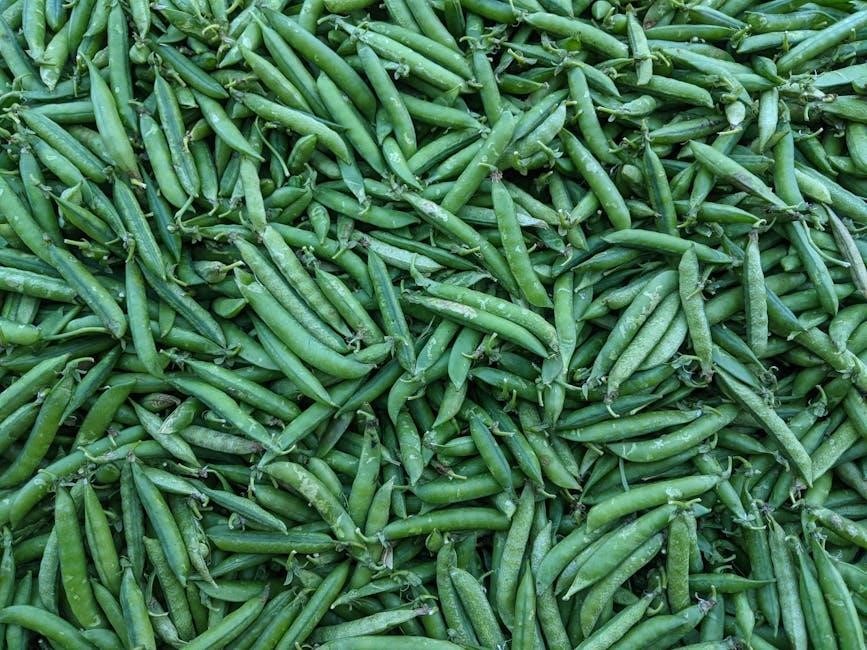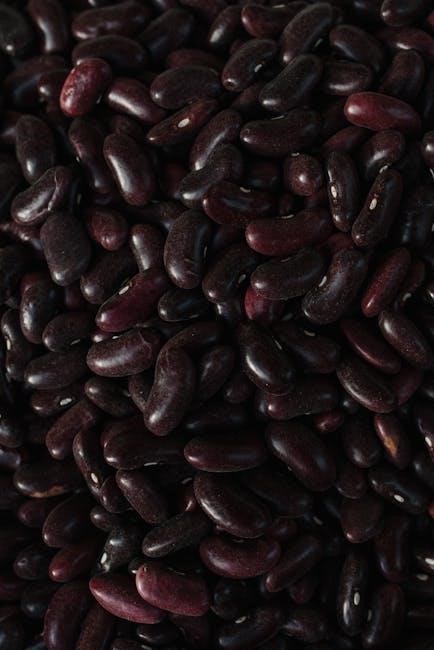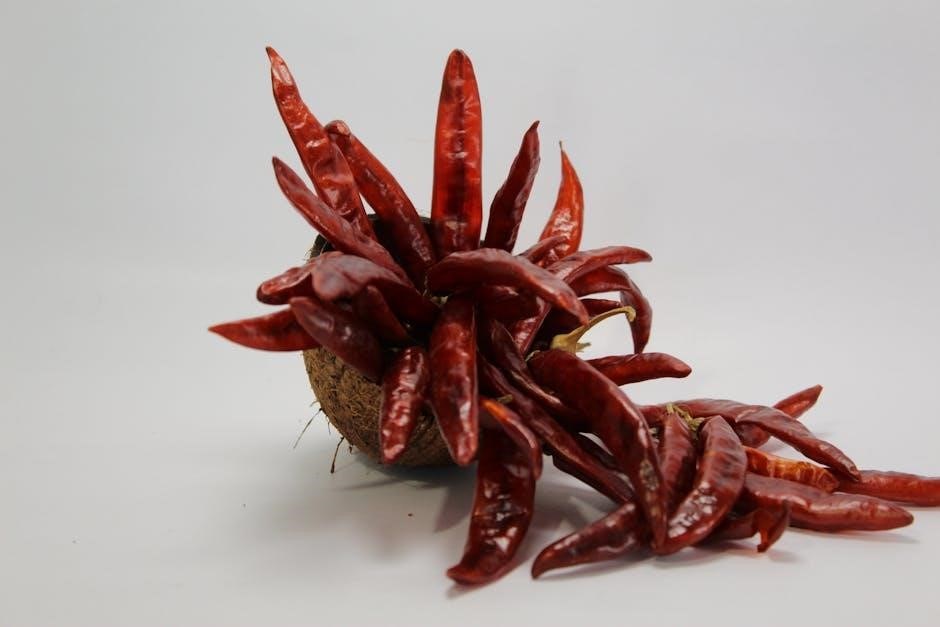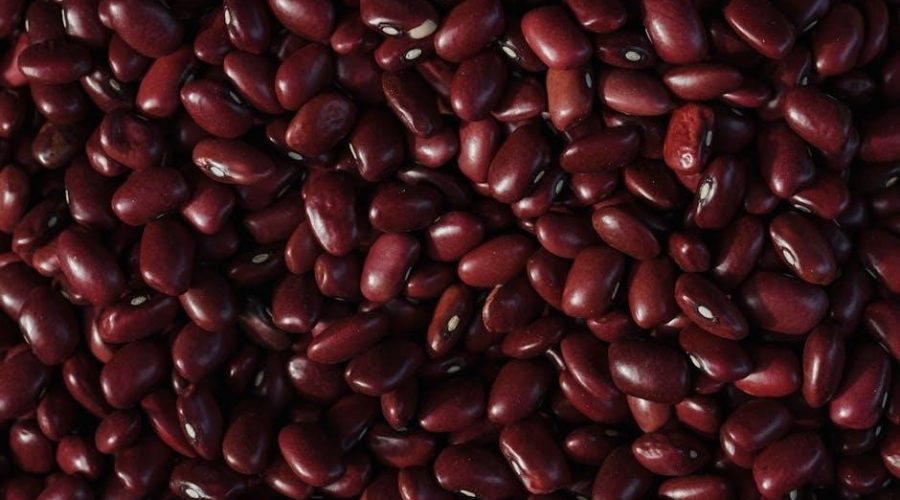A well-structured Indian diet chart for kidney patients focuses on balancing essential nutrients to support renal health․ This meal plan helps manage kidney disease progression, promoting overall well-being․
1․1․ Role of Diet in Managing Kidney Health
Diet plays a crucial role in managing kidney health by reducing the strain on kidneys and preventing further damage․ A well-planned diet helps regulate essential nutrients like sodium, potassium, and phosphorus, which are critical for kidney function․ By limiting these nutrients, patients can slow disease progression and maintain overall well-being․
A kidney-friendly diet focuses on balancing protein intake, avoiding processed foods, and incorporating low-sodium, low-potassium options․ Foods like chapati, steamed vegetables, and moong dal khichdi are ideal․ Avoiding high-potassium foods such as spinach and potatoes is also recommended․ This dietary approach helps stabilize kidney function and reduces complications, ensuring a better quality of life for patients․
1․2․ Importance of a Renal Diet for Kidney Patients
A renal diet is essential for kidney patients as it helps manage kidney function and prevent further damage․ By controlling sodium, potassium, and phosphorus intake, it reduces the strain on kidneys․ This diet also helps maintain fluid balance and protein levels, which are vital for overall health․ A well-planned renal diet can slow disease progression and improve quality of life․
For Indian patients, incorporating kidney-friendly foods like chapati, rice idli, and moong dal khichdi is beneficial․ Avoiding processed foods, high-potassium vegetables, and excessive protein ensures optimal kidney function․ A renal diet is not about starvation but about making informed choices to protect kidney health and prevent complications․ It is a cornerstone of managing kidney disease effectively․
1․3․ Benefits of a Kidney-Friendly Indian Meal Plan
A kidney-friendly Indian meal plan offers numerous benefits, including reduced strain on the kidneys and slower disease progression․ It helps manage electrolyte levels, preventing complications like hyperkalemia and hyperphosphatemia․ This diet supports overall health by providing essential nutrients while avoiding harmful substances․ Incorporating traditional Indian foods like idli, chapati, and steamed vegetables ensures meals are both nutritious and flavorful․ It also aids in maintaining a healthy weight and controlling blood pressure, which are crucial for kidney health․ By following this meal plan, patients can enjoy a balanced and culturally appropriate diet that supports their renal well-being and enhances their quality of life․
Understanding the Renal Diet
A renal diet focuses on managing sodium, potassium, phosphorus, and protein intake to support kidney function and reduce strain on the kidneys, tailored to individual needs․
2․1․ What is a Renal Diet?
A renal diet is a personalized eating plan designed to support kidney health by managing specific nutrients․ It focuses on limiting sodium, potassium, and phosphorus intake, as these minerals can strain the kidneys when consumed in excess․ Protein intake is also regulated, with a preference for high-quality sources to reduce waste products․ Additionally, fluid intake is carefully monitored to prevent overburdening the kidneys․ The diet is tailored based on the severity of kidney disease and helps slow disease progression․ By adhering to a renal diet, patients can maintain better overall health and reduce complications associated with kidney damage․ This dietary approach is often recommended by healthcare providers and dietitians for optimal kidney care․
2․2․ Key Nutrients to Monitor: Sodium, Potassium, Phosphorus, and Protein
Managing sodium, potassium, phosphorus, and protein intake is crucial for kidney health․ Sodium should be limited to avoid high blood pressure, which can strain the kidneys․ Potassium, while essential, must be controlled as excess levels can lead to complications․ Phosphorus intake is also restricted, as high levels can weaken bones and damage kidneys․ Protein is important but should be consumed in moderation to avoid overworking the kidneys․ These nutrients are carefully balanced in a renal diet to ensure optimal kidney function and prevent further damage․ Monitoring these elements helps maintain overall health and slows disease progression․ A well-planned diet, tailored to individual needs, ensures these nutrients are within safe limits․ This balanced approach supports kidney function and enhances quality of life for patients․
2․3․ Fluid Intake Guidelines for Kidney Patients
Fluid intake is critical for kidney patients to maintain proper hydration while avoiding overburdening the kidneys․ Drinking too much fluid can strain the kidneys, while insufficient intake may lead to dehydration․ Patients should consult their healthcare provider to determine the ideal daily fluid intake, typically ranging from 1 to 2 liters, depending on activity level and climate․ Fluids include water, soups, and beverages like herbal teas․ Avoiding excessive salty or sugary drinks is recommended․ Monitoring urine output and color can help assess hydration levels․ Staying hydrated supports waste removal and prevents kidney stones․ Balancing fluid intake is essential to maintain kidney function and overall health․ Moderation is key, ensuring the body’s needs are met without overloading the kidneys․ This guideline helps patients manage their condition effectively and safely․ Proper hydration practices are vital for kidney health and disease management․

Essential Foods for Kidney Health in an Indian Diet
Essential foods for kidney health include low-potassium fruits like papaya and pomegranate, vegetables such as cabbage and carrots, whole grains, and lean proteins like eggs and tofu․ These foods support kidney function and overall well-being․
3․1․ Kidney-Friendly Fruits: Papaya, Pomegranate, and Others
Fruits like papaya and pomegranate are excellent choices for kidney patients due to their low potassium content and high antioxidant properties․ Papaya is rich in vitamin C and fiber, aiding digestion and reducing inflammation․ Pomegranate, known for its anti-inflammatory properties, helps protect the kidneys from oxidative stress․ Other kidney-friendly fruits include apples, berries (like strawberries and blueberries), and watermelon, which are low in potassium and phosphorus․ These fruits provide essential nutrients without overburdening the kidneys․ Incorporating these into meals ensures a balanced diet while managing kidney health effectively․Moderation is key, as even healthy foods can impact kidney function if consumed excessively․ Always consult a dietitian for personalized recommendations․
3․2․ Recommended Vegetables for Kidney Patients
Vegetables play a crucial role in a kidney-friendly diet, offering essential vitamins and minerals without overloading on harmful substances․ Cucumber, carrots, and cabbage are excellent choices due to their low potassium and phosphorus content․ Green beans, spinach (in moderation), and cauliflower are also suitable, providing fiber and antioxidants․ Bell peppers, zucchini, and eggplant are recommended for their anti-inflammatory properties and low sodium levels․ These vegetables support kidney function by reducing oxidative stress and inflammation․ It’s important to cook them without adding excessive salt or potassium-rich ingredients․ Always opt for fresh, seasonal vegetables to maximize nutritional benefits while adhering to dietary restrictions․
3․3․ Whole Grains and Their Role in a Renal Diet
Whole grains are a cornerstone of a healthy renal diet, providing essential fiber, vitamins, and minerals while being low in harmful substances․ Oats, quinoa, and brown rice are excellent choices, as they are rich in fiber and minerals like magnesium and iron․ Whole wheat chapatis and dalia (broken wheat) are also recommended for their nutritional value․ These grains help regulate blood sugar levels and promote digestive health․ Additionally, they are low in potassium and phosphorus, making them suitable for kidney patients․ Incorporating whole grains into meals supports overall well-being and helps manage kidney disease progression effectively․ Moderation and proper preparation are key to maximizing their benefits․

Foods to Avoid for Kidney Health
Eliminating processed foods, high-potassium, phosphorus, and sodium-rich items is crucial for kidney health․ Avoid dried nuts, seeds, beans, and soft drinks to prevent further damage․
4․1; Processed Foods and Their Impact on Kidneys
Processed foods are detrimental to kidney health due to their high sodium, phosphorus, and potassium content․ Regular consumption can lead to mineral imbalances and increased kidney strain․ These foods often contain additives and preservatives that further exacerbate renal stress․ Patients are advised to limit or avoid items like fast food, canned goods, and ready-to-eat meals․ Instead, opting for fresh, whole ingredients ensures better control over nutrient intake․ Over time, avoiding processed foods can significantly reduce the risk of kidney damage and support overall renal function․ It is essential to prioritize natural, unprocessed foods in a kidney-friendly diet to maintain optimal health and prevent complications․
4․2․ Limiting High-Potassium Foods
For kidney patients, managing potassium intake is crucial to prevent complications․ High-potassium foods like spinach, potatoes, and tomatoes can strain the kidneys․ These foods, when consumed in excess, can lead to hyperkalemia, a condition where potassium levels in the blood become dangerously high․ This can disrupt heart function and worsen kidney damage․ Kidney patients are advised to avoid or significantly limit such foods․ Instead, they can opt for low-potassium alternatives like cabbage, carrots, and apples․ Monitoring potassium levels through regular blood tests and dietary adjustments is essential․ Consulting a dietitian can help create a personalized plan to ensure potassium intake remains within safe limits while maintaining nutritional balance․ This approach supports overall kidney health and prevents potential risks associated with excessive potassium consumption․
4․3․ Avoiding Foods High in Phosphorus and Sodium
Limiting foods high in phosphorus and sodium is vital for kidney patients to reduce strain on the kidneys․ High-phosphorus foods, such as dairy products, nuts, and seeds, can lead to mineral imbalances, while excessive sodium increases blood pressure and fluid retention․ Processed foods, fast food, and salty snacks are major sources of sodium and should be avoided․ Opt for low-phosphorus alternatives like rice, corn, and green beans․ Herbs and spices can enhance flavor without adding sodium․ Reading food labels to check sodium and phosphorus content is essential․ A diet low in these minerals helps protect kidney function and overall health․ Consulting a dietitian ensures a balanced and safe meal plan tailored to individual needs․ This approach prevents complications and supports long-term kidney well-being․

Sample 7-Day Indian Diet Chart for Kidney Patients
This 7-day Indian meal plan offers balanced, kidney-friendly options, including chapati, pulao, and moong dal khichdi, ensuring low sodium and phosphorus intake for better kidney health․
5․1․ Breakfast Options: Idli, Oatmeal, and Dalia
Idli, oatmeal, and dalia are excellent breakfast choices for kidney patients, offering balanced nutrition without excessive sodium or phosphorus; Idli, made from fermented rice and lentils, is low in potassium and easy to digest․ Oatmeal provides fiber, helping manage blood sugar and cholesterol levels․ Dalia, a broken wheat porridge, is rich in complex carbohydrates and minimal in phosphorus․ These options can be paired with mild spices or herbs for flavor․ Adding a small portion of low-potassium vegetables like carrots or peas to dalia enhances its nutritional value․ These breakfast options support kidney health while keeping meals tasty and satisfying․ Regular inclusion of these dishes ensures a balanced start to the day․
5․2․ Lunch Ideas: Chapati, Pulao, and Steamed Vegetables
Chapati, pulao, and steamed vegetables are nutritious and balanced lunch options for kidney patients․ Chapati, made from whole wheat, provides fiber and energy while being low in potassium and phosphorus․ Pulao, a mild rice dish, can be flavored with herbs and paired with low-potassium vegetables like carrots or peas․ Steamed vegetables such as spinach, zucchini, and green beans are rich in vitamins and antioxidants, supporting overall health․ These meals are easy to digest and can be tailored to suit individual dietary needs․ Portion control is essential to manage sodium, potassium, and phosphorus intake․ Pairing chapati with pulao and steamed vegetables ensures a well-rounded meal that supports kidney function without compromising on taste․
5․3; Dinner Recommendations: Moong Dal Khichdi and Saag Paneer
Moong Dal Khichdi is a traditional Indian dish that is easy to digest and packed with nutrients; Made from split green grams (moong dal) and rice, it is low in potassium and phosphorus, making it ideal for kidney patients․ Pair it with a small portion of Saag Paneer, a dish made with spinach (low in potassium) and cottage cheese (a good source of protein without excessive phosphorus)․ Both dishes are flavorful and can be prepared with minimal sodium․ Ensure portion control and balance the meal with a side of steamed vegetables like zucchini or carrots․ This dinner option is not only kidney-friendly but also satisfying and nutritious, helping to maintain overall health while adhering to dietary restrictions․
Managing Nutritional Needs
Monitoring sodium, potassium, phosphorus, and protein intake is crucial for kidney patients․ Balanced nutrition helps maintain kidney function and prevents further complications, ensuring overall well-being․
6․1․ Balancing Protein Intake for Kidney Health
Balancing protein intake is vital for kidney patients, as excessive protein can strain the kidneys․ Moderate amounts of high-quality protein, such as eggs, fish, and limited portions of legumes, are recommended․ Plant-based proteins like moong dal and tofu are also suitable․ However, red meats and high-sodium processed meats should be avoided․ Protein intake should be tailored based on the severity of kidney damage, with guidance from a dietitian․ Proper portion control ensures the kidneys are not overburdened, while still meeting nutritional needs․ This balanced approach helps maintain overall health and slows disease progression, making it a cornerstone of a kidney-friendly Indian diet․
6․2․ Managing Sodium and Potassium in Daily Meals
Managing sodium and potassium intake is crucial for kidney health․ Sodium should be limited to avoid blood pressure spikes, which can strain the kidneys․ Opt for low-sodium salts and herbs for flavor instead of regular salt․ Potassium-rich foods like spinach, bananas, and potatoes should be consumed in moderation or avoided if potassium levels are high․ Pairing vegetables with lemon juice or vinegar can reduce their potassium content․ Regular monitoring of sodium and potassium levels through blood tests is essential․ A balanced approach ensures the kidneys function optimally without overexertion, making it easier to maintain overall well-being․ This careful management is a key component of a kidney-friendly Indian diet plan․
6․3․ Maintaining Adequate Fluid Levels
Maintaining adequate fluid levels is vital for kidney patients to prevent overhydration or dehydration․ Excess fluid can strain the kidneys, while insufficient hydration can impair waste removal․ Patients should drink water in moderation, avoiding high-sodium foods that increase thirst․ Herbal teas, low-sugar juices, and coconut water are healthy alternatives․ Monitoring urine output and color helps gauge hydration levels—pale yellow indicates proper hydration․ Fluid intake should be tailored to individual kidney function and medical advice․ Overhydration risks fluid retention and swelling, while dehydration can lead to dizziness and fatigue․ Balancing fluids is essential to support kidney function and overall health․ Always consult a dietitian to personalize fluid intake based on specific needs and health status․

Lifestyle Tips for Kidney Patients
Adopting a healthy lifestyle is crucial for kidney patients․ Regular health check-ups, maintaining a healthy weight, avoiding smoking and alcohol, and adhering to a renal diet are key․
7․1․ Importance of Hydration in a Renal Diet
Proper hydration is essential for kidney health, as it helps filter waste and toxins․ However, fluid intake must be balanced to avoid overburdening the kidneys․ Drinking enough water supports kidney function, prevents dehydration, and reduces the risk of kidney stones․ Patients with chronic kidney disease (CKD) should monitor their fluid intake based on their disease stage and medical advice․ Excessive fluid can lead to complications, while insufficient hydration may impair kidney function․ Signs of dehydration, such as dark urine and dizziness, should be addressed promptly․ A renal dietitian can help tailor hydration needs to individual requirements, ensuring optimal kidney health without overloading the system․ Balancing fluids is a critical aspect of managing kidney disease effectively․

7․2․ Role of Exercise in Managing Kidney Health
Regular exercise plays a vital role in managing kidney health by promoting overall well-being․ It helps maintain a healthy weight, reducing the strain on kidneys․ Physical activity also improves blood flow and circulation, which supports kidney function․ Exercises like brisk walking, yoga, and swimming are ideal for kidney patients, as they are low-impact and effective․ However, it’s crucial to avoid overexertion and consult a healthcare provider before starting any new regimen․ Exercise also aids in controlling blood pressure and diabetes, both of which are linked to kidney health․ A balanced routine combined with a renal-friendly diet can significantly improve quality of life for kidney patients, helping them manage symptoms and slow disease progression․
7․3․ Stress Management Techniques for Kidney Patients
Stress management is crucial for kidney patients, as chronic stress can worsen kidney function․ Techniques like meditation, deep breathing, and yoga help reduce stress levels․ These practices improve mental well-being and lower blood pressure, which is beneficial for kidney health․ Additionally, engaging in hobbies or spending time with loved ones can alleviate stress․ Regular physical activity, as part of a balanced lifestyle, also contributes to stress reduction․ It’s important for kidney patients to prioritize relaxation and emotional health to support overall well-being and slow disease progression․ By incorporating these techniques, patients can better manage their condition and improve quality of life․
Additional Resources

Explore downloadable Indian diet charts, online forums, and expert dietitian consultations for personalized kidney health management and support․
8․1․ Downloadable Indian Diet Chart for Kidney Patients in PDF
A downloadable Indian diet chart for kidney patients in PDF format provides a structured and accessible guide for managing kidney health through nutrition․ This resource typically includes a 7-day meal plan, listing kidney-friendly foods like idli, chapati, pulao, and steamed vegetables․ It also highlights foods to avoid, such as processed items, dried nuts, seeds, and soft drinks․ The PDF often details portion sizes and nutritional advice, ensuring users adhere to restrictions on sodium, potassium, phosphorus, and fluids․ Many resources are designed to be user-friendly, offering easy-to-follow instructions and recipes tailored to Indian cuisine․ This PDF is an invaluable tool for patients seeking to maintain kidney health and reduce disease progression․ It is widely available online for free or through medical websites․
8․2․ Online Communities and Forums for Kidney Patients
Online communities and forums provide invaluable support for kidney patients, offering a platform to share experiences and gain insights․ These spaces are rich with resources, including diet tips, recipes, and advice from fellow patients and experts․ Many forums discuss the Indian diet chart for kidney patients, sharing PDF guides and meal plans․ Users can ask questions, learn about managing nutrients like sodium and potassium, and find motivation․ Communities often include recipes for dishes like idli, chapati, and moong dal khichdi, tailored for renal health․ These forums also connect patients to dietitians and healthcare providers, fostering a sense of belonging and understanding․ They are accessible through websites, social media groups, and health platforms, making them a lifeline for those navigating kidney disease․ Engaging with these communities can empower patients to take control of their health journey․
8․3․ Consulting a Dietitian for Personalized Advice
Consulting a dietitian is crucial for kidney patients, as they provide personalized advice tailored to individual health needs․ A dietitian can create a customized Indian diet chart for kidney patients, ensuring it aligns with specific restrictions on sodium, potassium, and phosphorus․ They assess the patient’s condition, lifestyle, and preferences to design a meal plan that promotes renal health while incorporating traditional Indian flavors․ Dietitians also guide patients on portion control and nutrient balance, helping them avoid harmful foods․ Regular consultations ensure the diet remains effective as kidney function changes․ This personalized approach not only improves adherence but also enhances overall well-being․ Many dietitians offer downloadable resources, such as PDF charts, to simplify meal planning․ Their expertise is invaluable for managing kidney disease effectively and maintaining a healthy, balanced diet․
